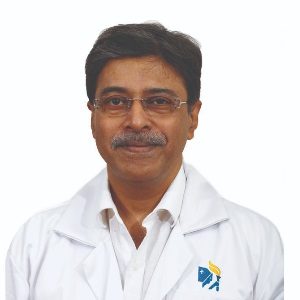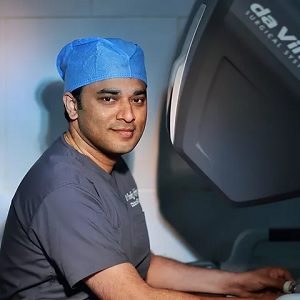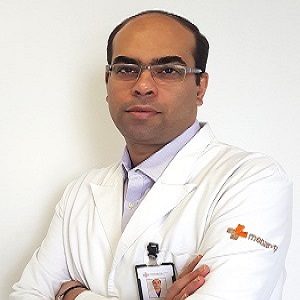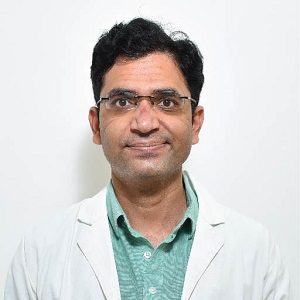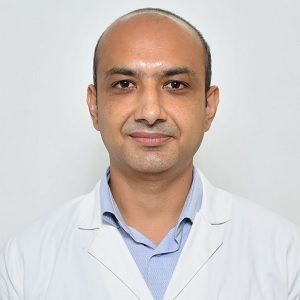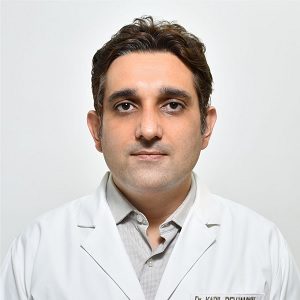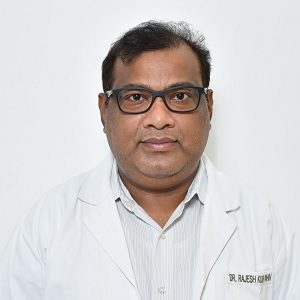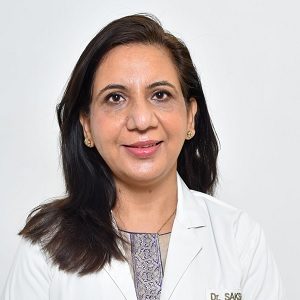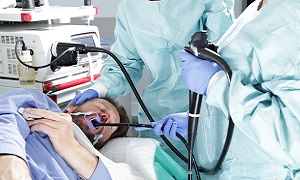Best Hospitals in India for Esophagitis Treatment
- Liver Transplant Surgeon and HPB Surgeon, Chennai, India
- Over 15 years’ experience
Profile Highlights:
- Dr. Selvakumar Naganathan is one of the best liver transplant surgeons in India with nearly 15 years of experience.
- He has carried out more than 2000 procedures, including 300 donor & 500 recipient hepatectomies, cadaver transplantations, retrieval of cadaver livers, and live donor liver transplants.
- He also established many liver transplantation centers across India & other countries.
- General Surgeon and Surgical Gastroenterologist, Chennai, India
- Over 27 years’ experience
Profile Highlights:
- Dr. Raghunath K J is a well-known name in the field of general surgery with an experience of more than 27 years.
- He went under training in advanced Laparoscopic surgery from Canada and France.
- Dr. Raghunath pioneers many prestigious projects in the UK.
- Dr. Raghunath has a specialized interest in Gall Bladder Stone treatment, Hernia, GI Cancer Surgery, Laparoscopic Sleeve Resection, Endoscopic Surgery, etc.
- Colorectal Surgeon and Robotic Surgeon, Chennai, India
- Over 26 years’ experience
Profile Highlights:
- Dr. Venkatesh Munikrishnan is one of the best Gastroenterologists and Colorectal Surgeons in Chennai, having 21 years of experience in managing disorders that need surgical treatment.
- Dr. Munikrishnan specializes in surgical oncology, endoscopy, Gastritis Treatment, etc.
- He is also active in research; one of his research on CT Colonography fetched a grant from Bracco, Milan, Italy.
- GI Surgeon and Liver Transplant Surgeon, Gurugram, India
- Over 20 years’ experience
Profile Highlights:
- Dr. Amit Nath Rastogi is a pioneer in the field of liver transplant surgery. He completed his fellowship in liver transplant surgery at Sir Gangaram hospital while being a part of the largest liver transplant program in the country.
- Furthermore, he received his training in robotic liver surgery from IRCAD -Strasbourg, France, and advanced robotic HPB training from Grosseto.
- Liver Transplant Surgeon, Gurugram, India
- Over 10 years’ experience
Profile Highlights:
- Dr. Prashant Vilas Bhangui is one of the highly trained liver transplant specialists who received his training in Surgical Gastroenterology and Liver Transplantation.
- He also holds a European Inter-University Diploma in Hepato-Biliary-Pancreatic Cancers.
- Dr. Prashant is further interested to work in certain fields which include hepatocellular carcinoma, colorectal liver metastases, and living donor liver transplantation. Besides this, he has also published several journals on these subjects.
- Gastroenterologist, Gurugram, India
- Over 7 years’ experience
Profile Highlights:
- Dr. Abhinandan Mishra is one of the young Gastroenterology doctors in Gurugram who is particularly interested in inflammatory bowel disease treatment.
- Dr. Abhinandan Mishra offers Endoscopic Retrograde Cholangiopancreatography, Ascites tap, Endoscopy, Peroral Endoscopic Myotomy, Capsule Endoscopy, Esophageal Manometry, Magnetic Resonance Cholangiopancreatography, etc.
- Gastroenterologist, Gurugram, India
- Over 18 years’ experience
Profile Highlights:
- Dr. Atul Sharma is a renowned Gastroenterology practitioner in Gurugram and is particularly interested in Third Space Endoscopy and Per Oral Endoscopic Myotomy (POEM).
- He presented several papers on Manometry, Luminal gastroenterology, and interventional Gastroenterology during training in Advanced Interventional GI Endoscopy.
- Gastroenterologist, Gurugram, India
- Over 15 years’ experience
Profile Highlights:
- Dr. Kapil Jamwal is a renowned GI practitioner in Gurugram with an extensive experience in digestive and liver disease.
- The specialist offers treatment for Hepatitis B, Jaundice, Hepatitis C, Inflammatory Bowel Syndrome, Acute Pancreatitis, Liver Diseases, and Irritable Bowel Syndrome.
- Gastroenterologist, Gurugram, India
- Over 18 years’ experience
Profile Highlights:
- Dr. Rajesh Padhan is a renowned Gastroenterologist in Gurugram with an extensive experience of more than 18 years in the field.
- He is skilled in carrying out various endoscopy procedures such as Colonoscopy, Endoscopic retrograde cholangiopancreatography, Endoscopic ultrasound, upper GI endoscopy, etc.
- Gastroenterologist, Hepatologist, Gurugram, India
- Over 25 years’ experience
Profile Highlights:
- Dr. Sakshi Karkra is one of the best Pediatric gastroenterologists in Gurugram.
- She has special interest/ expertise in Colonoscopy, Upper GI Endoscopy, Capsule endoscopy, Enteroscopy, Endoscopic variceal ligation, Foreign body removal, Stricture & achalasia dilatation, Polypectomy, Anal manometry, Liver Biopsy, and Colonic manometry.
Best Hospitals in India for Esophagitis Treatment
ESOPHAGITIS
Esophagitis is a condition that causes inflammation or irritation in the esophagus. The tube that sends food from your mouth to your stomach is called the esophagus. Common causes of this condition include acid reflux, bacterial or viral infections, or side effects of medications.
If left untreated, esophagitis might lead to ulcers, scarring as well as severe narrowing of the esophagus, which may be a medical emergency.
Symptoms
Some of the signs and symptoms of esophagitis are:
- Difficulty in swallowing
- Painful swallowing
- Heartburn
- Acid regurgitation
- Chest pain, mainly behind the breastbone, that occurs while eating
- Swallowed food getting stuck in the esophagus
This condition is also common among infants and young children, particularly those who are too young to explain their discomfort or pain. They might show symptoms such as:
- Feeding difficulties
- Failure to thrive
It is noteworthy that most of the signs and symptoms can also be caused by various different conditions that affect the digestive system. You should consider seeing your doctor if the symptoms:
- Lasts more than a few days
- Are severe enough to make it harder for you to consume food
- Don’t improve or go away after you use over-the-counter antacids
- Are accompanied by signs and symptoms of the flu, such as headache and fever
You should also consider seeking emergency care if you:
- Experience heavy pain in the chest that lasts over a few minutes
- Have a history of heart disease and also experience pain in your chest
- Suspect that you may have food lodged in your esophagus
- Experience pain in the mouth or throat while consuming food
- Experience shortness of breath or chest pain, usually after eating
- Vomit large amounts or have forceful vomiting
- Have trouble breathing after you vomit
- Are having vomit that is yellow or green or contains blood
Causes & risk factors
Certain factors that make you more likely to develop esophagitis include:
- The weakened immune system caused by HIV or AIDS, leukemia, diabetes, or lymphoma
- Hiatal hernia
- Surgery in the chest area
- Chemotherapy
- Radiation therapy of the chest
- Chronic vomiting
- Obesity
- Alcohol and cigarette use
- Medications are taken to prevent organ transplant rejection
- Immunosuppressive medications used in the treatment of autoimmune diseases
- Aspirin and anti-inflammatory medications
- A family history of allergies or esophagitis
If your immune system is healthy, your chances of developing an infection in the esophagus are quite low.
Diagnosis
In order to confirm your diagnosis, your doctor will need a physical exam, as well as one or more tests. These tests can include:
Barium X-ray
For this test, you are supposed to drink a solution that contains a compound known as barium or take a pill that is coated with barium. Barium coats the lining of the esophagus and stomach, and thus, the organs become visible. Then your doctor is able to take images, which can help identify narrowing of the esophagus, as well as other structural changes, a hiatal hernia, tumors as well as other abnormalities that can be leading to the symptoms.
Endoscopy
In this method, your doctor guides a long, thin, and equipped with a tiny camera, i.e. endoscope down the throat and into the esophagus. With the help of this instrument, your doctor is able to look for any unusual appearance of the esophagus and remove small tissue samples for testing. Depending on the cause of the inflammation, the esophagus might look different, such as drug-induced or reflux esophagitis. You are going to be sedated lightly during this test.
Biopsy
Treatment
Medications
Treatments for this condition generally depend on the cause:
- Esophagitis that is caused by an infection can be treated with medications to cure the infection.
- Esophagitis caused by a medical procedure might require the use of acid-blocking medications for a long time
- Esophagitis which are caused by acid reflux or GERD is treated with medications for reducing or blocking acid production
- If your esophagitis is caused by medications, you might need changes in your medication. However, it is quite important to talk to your doctor before you stop or change your medications.
If the condition is diagnosed early enough, then medications and dietary changes are enough to allow healing of the body. However, if the damage is severe, or leads to scar tissue, which makes swallowing difficult, then it might make more invasive treatments necessary.
Endoscopy
Endoscopy is able to remove any lodged pill fragments, food, or foreign bodies stuck in the esophagus. Stretching or dilatation of the esophagus might also be done as part of this procedure.
Surgery
Surgery might become necessary in order to remove any damaged portions of your esophagus. In the case of Barrett’s esophagus, where the risk of cancer increases, surgery is generally the preferred treatment.
Complications
If left untreated, esophagitis might lead to various health complications related to the function and structure of the esophagus. Some of these complications can include:
- Barrett’s esophagus, where there is damage to the lining of your esophagus. This may even lead to a precancerous change in the tissue.
- Stricture, or narrowing, of the esophagus that might cause obstruction and problems swallowing
Holes or ulcers in the esophagus, i.e. esophageal perforation.


